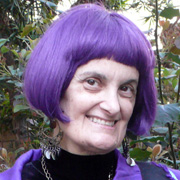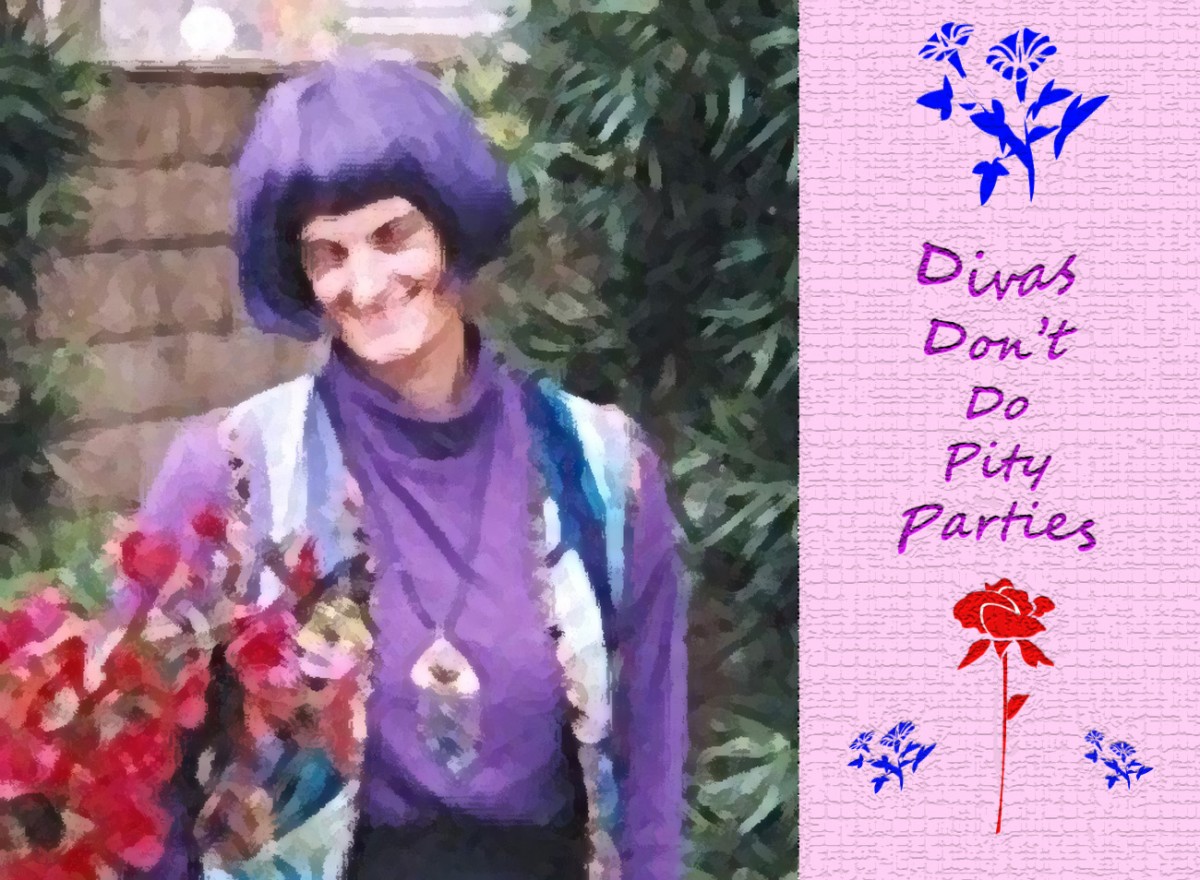With a belabored shuffle, I enter the store. I’m off-balance, and seem likely to careen into the seasonal display of patio furniture — or collapse onto it, for lack of energy to take the next step.
My feet are swollen from edema (water retention) and partially numb from the ankles on down due to neuropathy (nerve damage), both common side effects of chemotherapy. A bright scarf covers my bald head. Perfectly drawn eyebrows frame my almost-lashless eyes.
If you know what chemo looks like, I’m a prime contender for today’s Poster Child. Even if you’re not familiar with the side effects, something about me is obviously wrong.
From several aisles away, a woman smiles — and holds her gaze long enough for me to see her and return the smile. She smiles again, and goes back to grocery shopping. Later, a woman in an electric cart nods as her wheelchair putters past me.
We’re part of the unspoken Sisterhood of Pain, women who are or have been sick or disabled, women who have been on the planet long enough to know when one of us is hurting. We make eye contact to say I know, we smile when words are unneeded. When we’re in close quarters — an elevator or a medical waiting room — we strike up a conversation as if we’ve known each other for ages. We talk in department stores, we talk in parking lots. I know. I know your pain, and I care.
Our eyes say it; our smiles confirm it: our shared pain has forged an empathic connection.
We are no longer strangers.

